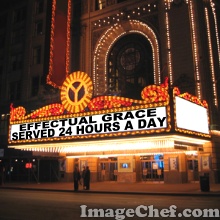Last Thursday, June 21 2012, I was interviewed by Pastor Kevin Boling on the “Knowing the Truth” Broadcast about my book “Twelve What Abouts” on a radio station covering all of South Carolina and parts of neighboring states. Here’s the link if you wish to listen to (or download) the show.
Monthly Archives: June 2012
Sinclair Ferguson Interview
 Welcome back all effectualgrace readers. I have missed you.
Welcome back all effectualgrace readers. I have missed you.
Due to technical issues with the server (other than for a few hours last Friday) this entire blog site has been down for the last 5 days. Hopefully things are more stable now. Perhaps we should look at it as the equivalent of a summer vacation, at least for those of us in the northern hemisphere.
I can think of few things better as a first post after this prolonged absence than an interview with Dr. Sinclair Ferguson. Senior Minister at First Presbyterian Church in Columbia, a professor of Systematic theology, a Ligonier Ministries teaching fellow, as well as a prolific author whose books include By Grace Alone and In Christ Alone, Dr. Ferguson has an extensive ministry in the Body of Christ. I always enjoy hearing his strong Scottish accent as well as his profound insights into the Scriptures.
The following interview lasts just under 40 minutes. In the first 17 minutes, Dr. Ferguson recalls some of the details of his conversion and call to Christian ministry and then continues with some sound advice for those considering pastoral ministry.
Again, welcome back. Enjoy!
Ten Tips for Greater Reading Comprehension
1. “Never read a book without a pen in your hand.” ~ Benjamin Franklin – That’s great advice whether you write in your books or take notes in a notebook. Personally, I write, scribble, highlight, argue and draw symbols in all my books.
2. Read a whole paragraph / section BEFORE you stop to highlight or take a note. Don’t stop right when you see something interesting; keep reading to get the “big picture” or context of what stood out to you. Then “reread” when you make your notes.
Continue reading
